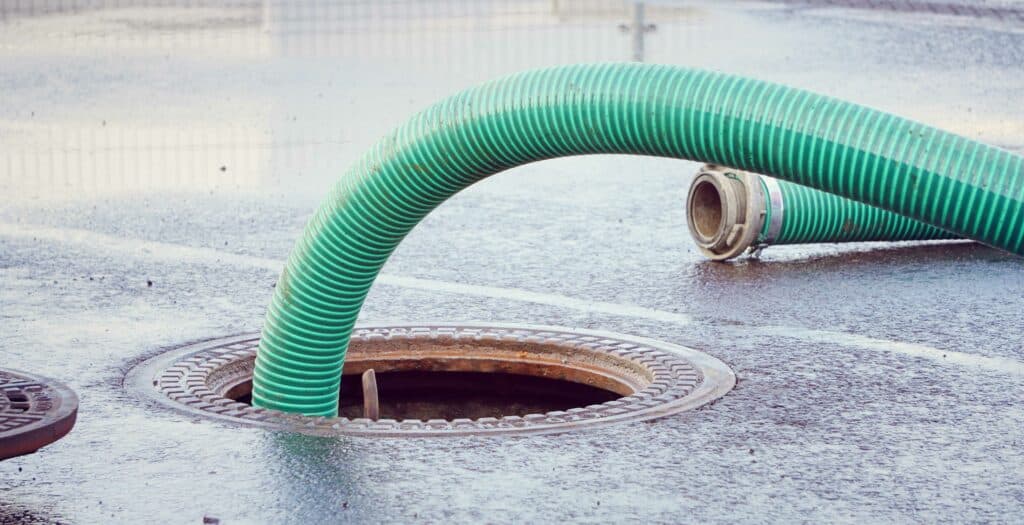Massachusetts Town Plans Crack Down On Grease Trap Pumping
If a local restaurant in Bourne Massachusetts does not correct its infractions of the town’s sewer rules and regulations, it could face some severe fines. The proprietor of the restaurant has refused to react to any correspondence on the noncompliance of his establishment, and the town’s patience with him is running thin.
During the Board of Sewer Commissioners meeting, concerns about the restaurant’s lack of compliance were brought up. The Town Administrator informed the Board that the owner has been unresponsive to all correspondence and visits from town staff.
She added that the Town Engineer made many trips to the restaurant in an effort to get in touch with the owner, but without success. The administrator claimed that she wrote the owner and demanded that he bring the restaurant fully into conformity in order to avoid the town taking any enforcement action.
According to the order, the restaurant was required to put in a new grease trap and create a FOG (fats, oils, and greases) maintenance schedule. The current grease trap needs to be pumped out every other week, and town staff have access to a journal outlining the schedule.
The Town Administrator claimed that the grease trap had not been pumped on a regular basis and that the town had not been given a FOG maintenance plan.
The American Rescue Plan Act (ARPA) provided $2 million in funding, and the Town Administrator recommended that the sewer commissioners approve allocating the majority of those funds—$1 million—to the reconstruction and upkeep of manholes and pumps close to the restaurant. Grease from the restaurant has clogged the sewer system, she claimed, which is a significant contributor to the issue.
Grease traps are plumbing fixtures used to collect fats, oils, and grease before they enter the sewer system. The restaurant doesn’t have an internal grease trap, because it was constructed before the state’s plumbing code was changed to require one.
The Town Engineer examined the external grease trap at the restaurant. The sewer pump chamber had significant grease buildup, according to the examination. One to two inches of grease had accumulated in the external grease trap, according to a record of pumping, which equals around 18 gallons of grease each day emitted by the restaurant.
Board members expressed concern that the $2 million in ARPA monies would end up having been wasted if the restaurant didn’t comply with the sewer standards. They stated there’s a chance the recently installed new equipment will malfunction.
“We’re investing a considerable sum of money into fixing that pump, and if this problem isn’t fixed, then that pump will go and it’s not a cheap remedy.”
According to the town’s regulations, the Department of Public Works has the authority to take certain measures, such as issuing a cease-and-desist order for any violations, demanding the submission of a plan to minimize the violations, and setting a deadline for resolution.
The town has asked for the plan and the renovation, according to the Town Administrator, but no response has been received. She stated that the town’s options at this time are either legal action or the imposition of fines.
The Town Administrator had suggested adding a number of new fines and fees to the town’s sewer rules earlier in the discussion. Her suggestions included a $200 permit charge, $50 for a grease trap inspection, and a $50 daily fine for using a grease trap without a FOG management plan or permit. A $200 permit price was also suggested for connecting a new grease trap to the sewer system.
A Board Member questioned whether the inspection fee would be charged for routine inspections or when a problem was found and needed to be fixed. It would apply in both situations, according to the Town Administrator.
The Town Administrator stated that she had the power to begin levying fines against the restaurant because the Board had approved the fees and penalties. She indicated that if the owner wanted to contest the fines, he could go to the sewer commissioners.
Another Board Member stated that imposing fines should be a “last-ditch effort” after unsuccessful attempts to contact the business owner. His unwillingness to interact with and cooperate with the community is the source of his problems.
The Board Member hoped that the potential for sanctions would make the owner realize that the Town meant business.
If you’d like to keep food debris from clogging your grease trap so you won’t need to have it pumped out as often, consider installing The Drain Strainer.
Invented by a former restaurant owner, The Drain Strainer captures food solids that normally clog your pipes and grease trap, while still allowing your sinks to drain quickly.

